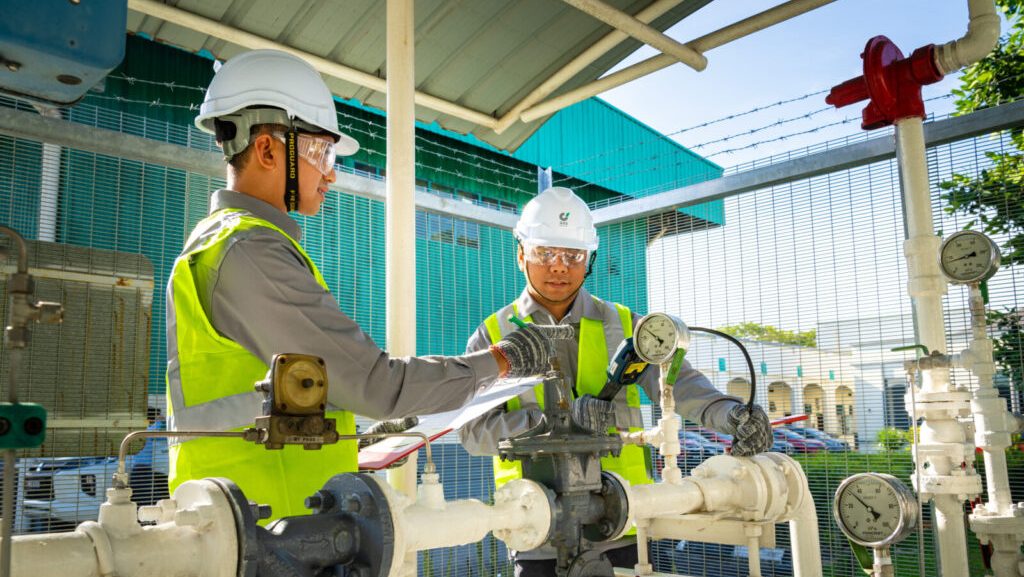MALAYSIA: Malaysia is set to introduce a comprehensive Natural Gas Roadmap (NGR) later this year, aiming to enhance the natural gas sector’s contribution to the economy. Economy Minister Datuk Seri Rafizi Ramli announced that the sector, which currently contributes RM52 billion ($11.7 billion) to the nation’s gross domestic product (GDP), will be a key focus for infrastructure expansion and investment growth.
Government’s vision for the natural gas industry
Speaking at the Malaysian Gas Symposium on 13 Feb 2025, Mr Rafizi outlined the government’s long-term plans for the gas sector. According to a report by Bernama, he emphasised the need for clearer regulations, market competitiveness, and infrastructure development to ensure a stable and reliable energy supply.
The government has identified infrastructure expansion as a critical part of the plan, particularly in the form of regasification terminals and new pipelines. This is expected to generate employment in technical fields and maintain the sector’s socio-economic impact. Furthermore, this initiative aligns with Malaysia’s broader energy transition strategy, which aims to increase the share of natural gas in the country’s total primary energy supply from 43% in 2023 to an estimated 56% by 2050.
Addressing market pricing challenges
One of the biggest challenges in Malaysia’s natural gas industry is pricing. As reported by S&P Global Commodity Insights, Mr Rafizi highlighted that the cost of imported liquefied natural gas (LNG) remains higher than domestically produced gas, making gas-to-power projects less viable for investors. To tackle this issue, the government is considering cost benchmarking to ensure that gas prices better reflect actual market conditions, thereby making investments more attractive.
The minister also noted that a more competitive gas market would encourage foreign and private-sector participation, supporting Malaysia’s ambitions to position itself as a key player in the global energy market.
Enhancing infrastructure and third-party access
According to Offshore Technology, Malaysia is also looking to improve third-party access (TPA) to its gas infrastructure. Since TPA was introduced in 2017, licensed importers and shippers have been permitted to use Malaysia’s gas facilities for distribution. However, despite licences being issued since 2019, actual LNG imports by private companies have yet to commence.
In a significant step towards expanding Malaysia’s energy sources, E&H Energy signed a long-term LNG supply agreement with Mexico’s Amigo LNG in August 2024. This deal is seen as a milestone in diversifying Malaysia’s gas imports and ensuring long-term energy security.
Industry collaborations and future outlook
The Malaysian Gas Association reports that the MyGAS 2025 symposium has become a key platform for stakeholders to discuss future industry trends, regulatory frameworks, and global market influences. The government’s commitment to launching the NGR reinforces Malaysia’s long-term strategy to ensure energy security and solidify its standing as a competitive player in the international gas market.
Mr Rafizi reiterated that the government remains committed to a stable and competitive energy sector that benefits businesses and consumers. With the roadmap’s official release expected in the coming months, industry players anticipate further clarity on investment opportunities and policy directions.
The NGR is expected to attract international investors, enhance Malaysia’s gas infrastructure, and support the nation’s transition towards a more sustainable and diversified energy sector. As the world shifts towards cleaner energy, Malaysia is positioning itself as a key regional energy hub, ensuring the natural gas sector continues to be a significant contributor to the economy.

